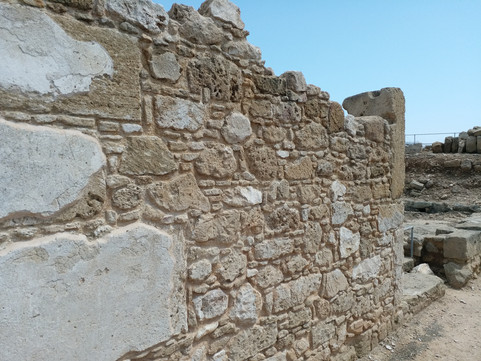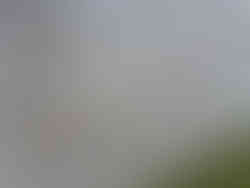BEYOND THE WALL
- Simon Howard

- Aug 22, 2019
- 4 min read
Updated: Mar 14, 2020
An abandoned watchtower stands beside the battered, graffiti-laden Wall which will mark, for another few weeks, the East and West of Berlin. Beyond it has risen a protest camp, set up to oppose Mercedes’ plans for building on Potsdamerplatz. And beyond this lies an eerie wasteland, and a stream of evening traffic moving Westward, with a group of gypsies drifting the same way from behind Tom. One of them, an adolescent girl, lets out a mock scream which echoes off the graffitied Wall, bouncing between the East and West.
Cyclists rush out of the shadows at him, so Tom veers across the desolate strip of nomansland towards Hitler’s unmarked bunker, on top of which a young couple kiss passionately in silhouette before cycling off, like the others – and like ghosts.
Here lived Hitler like the Minotaur in his Labyrinth, the vampire in its lair, but under Tom’s feet lie dust and scattered stones – making it the least adorned, least recognised historical site he has ever visited. It’s a desert of uncared for, unhallowed ground. He’s in a city with a sense of nowhere at its centre, and the centre has been the boundary for over forty years because there are two of it. Confusing, he thinks...
Lost in the wasteland, stands a girl with flowing hair like a mermaid’s, surrounded by her luggage, landlocked. She seems so private that Tom feels unable to approach her. Instead, he drifts back towards the Wall, where a young man is chiselling out a piece of rubble as a present for his girlfriend.
At the Turkish Market, stallholders sell Russian dolls and parts of Soviet uniforms, their eyes hidden by the peaks of the officers’ caps they’re wearing. Heads wrapped in scarves, their wives crouch over little stoves behind the stalls, brewing coffee in the dark. Children, dressed warmly in bits of uniform, run around happily while the smaller ones sleep in the shadows. Against the dying light of the sky, the Bundesrepublik flag flutters on top of the Reichstag.
***
More aware of ghosts than he has ever been in any other city, Tom wanders on. When he reaches a builders’ metal wall, he looks up and sees the tips of unlit wings high up on what must be the Brandenburg Gate. He ambles down Unter den Linden, astonished by the beauty of the buildings, dark Baroque things looming out of the dark. The Opera House, government offices…
Seated in a café, he is surrounded by hordes of jolly Berliners who have been to the theatre or cinema, or just out walking. Next to him is a fit-looking elderly man with silver mutton-chop whiskers and a white singlet showing off his strong old arms.
‘Self-service!’ shouts a waiter.
A good-humoured sigh passes around the customers.
‘Self-service!’ they call, resigned to the change.
‘May I get your steak for you?’ asks the elderly man, his eyes twinkling at the sight of Tom’s arm in its white plaster.
‘It’s a funny way to run a café,’ says Tom five minutes later, cutting into the red meat on his plate. (He imagines a white van driver in the West of Ireland saying: ‘It might be funny, but it isn’t unusual.’)
‘May I impress on you one thing, sir…’ says the old man in impeccable English, munching a sausage and making a statement more than asking a question. ‘They have been living under an oppressive régime for forty years and have only a few weeks left to get used to the change. It will take some adjusting.’
Now, because Tom’s a traveller without maps, he’s become a little confused about when he’s in the West and when it’s the East. He rather imagined the beautiful parts would be in the West, and all the dreary bits, the East. He stops chewing.
‘This is the East?’
‘Yes.’
‘But it’s so beautiful.’
‘The Imperial Prussian city is going to be taken over by Catholic Jesuit Bonn,’ says the old man, continuing to chew. ‘Did you know that Chancellor Adenauer used to keep the curtains of his train compartment closed when he visited Berlin?’
‘Why?’
‘So that he wouldn’t have to see the awful Prussian landscape.’ He gets up. ‘Well, I must leave you, my good sir.’
Sausage grease glistening in his moustaches, the old man sets off for a night of adventure in his once imperial, soon to be Catholic, city of confusion.
For the first time in weeks Tom places the fork in his left hand and grips it with his fingers. It feels strange. The handle pushes its way inside the plaster covering the decomposing skin near his palm, while the prongs sink slowly into the tender meat, which he cuts with his knife. With difficulty he raises the bulky plaster towards his mouth, and his teeth pluck the steak from the fork. At that moment a fat chef tosses sausages to an enormous Pitbull Terrier, which devours them like flies before running into the shadows of the lawn. A party of Americans burst balloons at the next table.
As the hidden Pitbull tears about in search of God knows what, and the Americans burst their noisy balloons, as the Jesuits wait in the wings in Bonn, as the statue waits on top of the Brandenburg Gate under a canopy of stars, as the stars wait, as the stars and stripes wait, as the gypsies wait, the protesters and the Turks wait, the mermaid waits surrounded by her belongings, the lovers wait, the waiters wait and the customers wait for them, the old man with mutton-chop whiskers waits, and Tom waits, most of all his tender, broken wrist waits. At least he’s learned tonight that the healing has begun.
*****












Comments